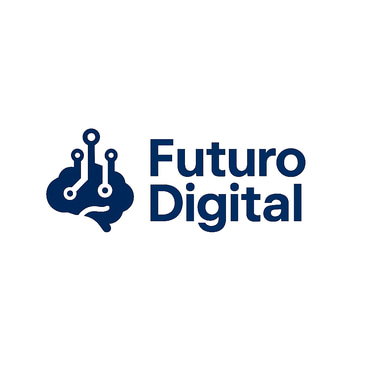Essential SEO Tools for 2025: Ultimate Guide
Discover the essential SEO tools for 2025 in this ultimate guide. Learn how to transform your digital marketing strategy and boost your online presence with the best practices in SEO. Stay ahead of the competition and optimize your efforts effectively.
10/11/20254 min read


Search engine optimization (SEO) is undergoing a true revolution in 2025. With the rapid advancement of Artificial Intelligence (AI), SEO is no longer just a ranking technique—it has become a strategic discipline that combines technology, creativity, and user experience. This article explores the trends, tools, and best practices shaping the future of online visibility and explains how to prepare your website for the evolving digital landscape.
The New SEO Paradigm
In the early years of this decade, SEO changed dramatically. The focus moved away from simple keyword optimization toward understanding search intent and user experience. Google’s MUM (Multitask Unified Model) algorithm, together with generative AI, brought a new level of semantic intelligence, allowing search engines to interpret context and emotion behind every query.
In 2025, search engines reward relevance and authenticity. A well-structured, informative article written with clarity carries more value than a page stuffed with keywords. Technical optimization remains essential but is no longer enough—it’s about creating content that answers real questions, enriched with data, statistics, and a human touch.
Key Trends Redefining SEO
Multimodal search: combines text, voice, image, and video. Users no longer rely solely on typing—they can search using photos, voice notes, or spoken questions.
Predictive AI: smart tools like Gemini Insights and ChatGPT Enterprise forecast search behavior patterns and suggest topics before they trend.
Personalized content: search results now vary based on a user’s history, location, and preferences.
Accessibility first: Google values websites that offer inclusive experiences, with clear structure, image descriptions (alt text), and screen reader compatibility.
Speed and sustainability: digital efficiency has become an indirect ranking factor. Lightweight, fast, and energy-efficient websites perform better overall.
In 2025, SEO is not just about ranking—it’s about being relevant, useful, and trustworthy across all digital touchpoints.
The Most Important SEO Tools of 2025
Modern SEO tools powered by AI have transformed how marketers analyze data and optimize content. Platforms like Ahrefs AI Suite, Semrush Vision 2025, Surfer SEO Pro, and MarketMuse Neo are essential for professionals seeking precision and efficiency.
These platforms go beyond keyword research—they analyze search intent, semantic relationships, and content relevance. They allow marketers to understand how audiences interact with information and to predict traffic trends using behavioral and historical data.
Ahrefs AI Suite: performs comprehensive audits, detecting growth opportunities and high-authority backlinks.
Semrush Vision 2025: uses AI-driven forecasting to track live traffic performance and visibility metrics.
Surfer SEO Pro: recommends keyword density and structural improvements aligned with Google MUM’s semantic understanding.
MarketMuse Neo: identifies topic gaps and helps build optimized content clusters for better thematic authority.
These tools strike the right balance between analytics and creativity, empowering SEO professionals to make data-driven decisions with confidence.
How to Integrate AI into Your SEO Strategy
Integrating AI into your SEO strategy should be a gradual, goal-driven process. The first step is mapping your audience and understanding their search intent. Tools like Google Search Console and Gemini AI can help identify which topics generate engagement.
Next, automate operational tasks—technical audits, link analysis, and performance tracking—so you can dedicate more time to strategy and creative development. However, automation should never replace the human touch: editorial oversight ensures authenticity, coherence, and brand consistency.
The perfect balance lies in using AI as an assistant, not a replacement. Human intelligence remains the creative force that turns data into compelling stories.
Real Case Studies
MediaLink Portugal: After adopting AI-driven SEO, improved page speed by 38% and increased conversion rate by 27%.
Shopify Global (USA): By combining Ahrefs AI Suite and Semrush Vision, reduced page update time by 30% and saw a 22% boost in organic conversions.
Verde+ Startup (Brazil): Using MarketMuse Neo and Surfer SEO, achieved top 3 Google rankings for 60% of targeted keywords.
These examples show how combining AI with user-centered SEO can generate measurable and sustainable growth.
Ethics, Transparency, and Content Quality
The rise of AI also introduces ethical challenges. Mass-generated content risks becoming redundant or misleading. Google explicitly values original, helpful, and honest content. Therefore, AI-generated text must always be reviewed and enriched by humans to ensure authenticity and value.
Best practices include:
Citing credible data sources (e.g., Statista 2025, Moz Research, Forrester Reports).
Avoiding clickbait headlines and exaggerated claims.
Ensuring human review for all automated content.
Maintaining transparency by disclosing when AI is used in the creative process.
Digital ethics will be one of the core foundations of online brand sustainability in the coming years.
The Future of SEO: 2027 and Beyond
By 2027, SEO will be fully integrated with conversational AI systems. Tools like Google Gemini and Bing Copilot will deliver highly personalized results, based on context, preferences, and location. Multimodal search—combining text, image, voice, and video—will become the new normal.
The future of SEO will be driven by three main forces:
Contextual relevance: the ability to answer user needs before they’re even expressed.
Ethical authority: rewarding websites that demonstrate trust, responsibility, and transparency.
Integrated experience: merging SEO, UX, and accessibility into seamless, human-centric navigation.
Companies that align technology with authenticity will lead the next generation of digital visibility.
Conclusion
In 2025, SEO demands more than technical expertise—it requires strategic thinking and ethical responsibility. Brands that focus on quality, usefulness, and transparency are the ones most likely to succeed and earn Google AdSense approval.
To maximize results and maintain compliance:
Create original, detailed, and credible content.
Invest in AI tools while keeping human oversight.
Update your site regularly and improve user experience continuously.
Maintain a healthy balance between innovation, empathy, and purpose.
The future of SEO belongs to those who understand that Artificial Intelligence is an ally—but human creativity remains irreplaceable.
Innovation
Discover how AI transforms everyday life
Technology
Blog
suportevirtual@futurodigital.blog
© 2025. All rights reserved.
Other Pages
